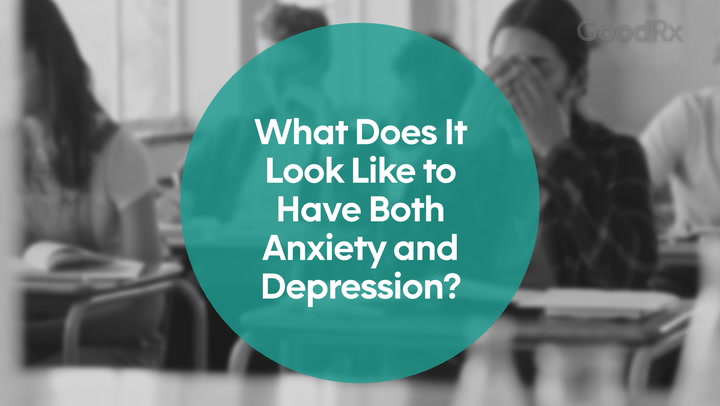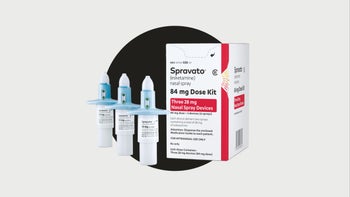
How to Find a Therapist Who’s Right for You
Key takeaways:
When selecting a therapist, you’ll want to find someone who meets your needs, matches your preferences, is compatible with your schedule and location, and charges a fee that’s within your budget.
The cost of therapy can vary between therapists and depending on whether you use insurance. There are lower-cost options available if you don’t have coverage.
You may end up seeing a few different therapists in the process of looking for someone to work with. But it’s normal for it to take some time to find the right match.
Starting therapy can feel overwhelming. You might be uneasy about sharing very personal information with someone who isn’t a family member or friend. But a good therapist can help you sort through important emotions, decisions, and mental health issues. Ultimately, they can support you in making healthy life changes and improving your mental health.
Knowing what to look for in a therapist can help ease some of the anxiety about starting therapy and make you feel better about taking those first steps.
Where do you find a therapist?
This part might seem like the most daunting. But you actually have quite a few options. Here are some places you can start.
Search and compare options
Contact your insurance company
Your insurance company can give you a list of therapists in your network. Most insurance companies also have an online portal where you can look up in-network therapists. You can then search for them on Google and look at their areas of expertise, location, and hours. If you can’t find a suitable therapist on the list, contact your insurance company again and ask them for help finding what you need.
Connect with your primary care provider
Most healthcare professionals should be able to give you a list of referrals to specialists. If you want to use your insurance and don't have out-of-network benefits, double-check whether the therapists they recommend are in your network.
Ask family and friends
Half of people in the U.S. say they feel very comfortable talking about their mental health with a friend or family member. Your social circle can be a great place to get therapist recommendations.
Look into resources at your school
If you’re a student, most colleges and universities offer free counseling for students. Some schools have online appointments as well.
Types and uses of therapy: Wondering why people go to therapy? Learn more about types of therapy and how it may benefit you.
How culture fits into therapy: Nikki Nurse shares her experience as a Black woman finding a culturally competent therapist.
Therapy without insurance: Therapy isn’t just for people with health insurance. Learn about free and low-cost mental health therapy options.
Websites to help you find a local therapist near you
If you want to look for a therapist on your own, try searching a therapist database. Each of the following databases has a “therapist finder” function that lets you search for therapists in your area. You can filter by things like specialty, cost, and insurance coverage. Here are some databases to try:
InnoPsych (therapists of color)
Open Path Psychotherapy Collective (low-cost therapy)
QPoC Therapist Directory (for queer people of color)
If you need low-cost therapy options, a community mental health or public health clinic may be an option. Use the Substance Abuse and Mental Health Services Administration’s Behavioral Health Treatment Services Locator to find clinics in your area. You can also see if your local graduate school offers low-cost services with qualified therapy students in training.
How do I find the best therapist?
The best therapist for you is someone who can meet your needs and who matches your preferences. Finding a culturally competent therapist for you can take some time, but it’s worth the investment.
Here are some “big picture” questions to think about as you look at individual therapists:
What type of therapist do you need? People go to therapy for many different reasons. Are you looking for behavioral health services for your child? Are you changing careers? Dealing with anxiety? You may want to search for a professional with experience in that area.
Does the therapist take your insurance? You can check with the practice with a quick email or phone inquiry. Contact your insurance company and see what coverage you have for mental health treatment. If you don’t have insurance, figure out what you can pay out of pocket.
What kind of personality works best for you? Think about the type of person you’re most likely to feel comfortable with and respond to. Kind and nurturing? Or someone more straightforward and blunt?
What type of therapy? Are you interested in individual, group, family, or couples therapy? Keep in mind that many therapists do more than one type of therapy, so you can ask about which approach may be best for you.
Would you rather do in-person or online sessions? Lots of therapists offer telehealth sessions, and there are text therapy services, too. Both in-person and virtual therapy have their pros and cons. But there’s no “right” way to do it. You can even try both and see which works better for you.
How far are you willing to travel? If you do want to attend therapy in person, consider location. If the therapist is too far away, it’ll be easier to talk yourself out of going to the appointments. You’ll be more likely to stick with someone who’s within a reasonable distance.
When can you attend therapy? Don’t forget to think about your schedule when you’re evaluating therapists. If it’s hard for you to make appointments during the day, you’ll want to look for someone who has evening hours. But keep in mind that these are popular spots and can fill up quickly.
Do you want a therapist who shares aspects of your identity? You may be looking for a therapist who has some things in common with you. For example, you may want to find a therapist who shares your gender, race, ethnicity, or cultural background. Think about what traits you’d like a potential therapist to have.
Read more like this
Explore these related articles, suggested for readers like you.
Once you’ve made a list of potential therapists, contact them to set up a short consultation or get more information. Some therapists will offer an initial phone consultation for free. When you speak to them, confirm the details from your search (such as cost, hours, and insurance).
Pay attention to the chemistry you have with them and whether you find them easy to talk to.
Picture yourself with the person and decide if you’d feel comfortable working with them. There’s no obligation to book an appointment.
Keep in mind that it may take a few sessions to get the best sense of fit.
Should I read reviews to find a therapist?
Therapists aren’t allowed to ask clients for reviews or respond to reviews that contain inaccurate information. Many therapists have no reviews, very few reviews, or sometimes bad reviews that may be a poor representation of their practice. Many clients don’t want to leave a review to protect their privacy.
Despite the limitations, some people like to read reviews as part of their decision-making process. If you’re interested in a particular therapist, you can look them up on Yelp and sites like Health Grades. Just keep in mind that reviews aren’t the best way to find out if someone is a skilled therapist.
How do I know if the therapist is good or qualified?
“Good” is subjective and depends on you and your needs. However, qualifications are an objective measurement (though not the only factor to consider). Qualifications mean the person has received proper training and met the requirements necessary to practice. Let’s take a closer look at factors to consider.
Licensing and credentials
Anyone who’s performing therapy needs a license or proper credentials to practice, so make sure that the therapist you choose meets the requirements in your state. To maintain an active license, they have to take ongoing courses to keep current and meet any other requirements set by the state’s licensing board.
When searching for a therapist, look at what type of license they have to make sure they are qualified to provide therapy.
The following are recognized types of therapist licenses:
Licensed professional counselor (LPC)
Licensed clinical social worker (LCSW)
Psychologist (PsyD or PhD)
Licensed marriage and family therapist (LMFT)
In addition, therapists who are in training and still working toward their license can provide care under the supervision of someone who does have a license. A therapist who’s not yet licensed must tell their clients that they’re still in training and working under someone else’s license. You may see their credentials listed as an “associate” or “intern.”
Specialty and type of therapy
Every therapist will offer different treatment types and areas of expertise. Look for a therapist who has training in issues you want to work on.
For example, if you have a certain mental health condition, look for a therapist with training in treating that condition. If you want to try a specific type of therapy, search for a therapist with experience using it. A therapist who doesn’t have specialized knowledge in what you need may not be a good fit.
A good fit and relationship
Your relationship with your therapist is one of the most important factors in determining how much you’ll get out of therapy. That’s why finding a therapist who feels like a good fit is so important. As you ask questions and get to know potential therapists, reflect on how you feel with that person and consider the following:
Do you feel comfortable sharing vulnerable details?
Does the therapist understand and empathize with you?
Do you feel like your therapist has relevant experience and values for working with clients with your cultural background?
Do you feel comfortable giving your therapist feedback about what’s working for you or not?
The bottom line
Trying to find a therapist can be daunting. To find a mental health professional who’s right for you, ask for referrals from loved ones or your primary care physician. You can also search online for a therapist based on cost, whether they accept insurance, and location. It’s common to see a few therapists before you find the right person. Don’t give up or blame yourself if things don’t work out. Once you connect with someone, you can begin the journey of therapy and the process of healing. It’ll be worth the effort.
Why trust our experts?



References
DeAngelis, T. (2019). Better relationships with patients lead to better outcomes. American Psychological Association.
Pasquini, G., et al. (2024). Who do Americans feel comfortable talking to about their mental health? Pew Research Center.
For additional resources or to connect with mental health services in your area, call SAMHSA’s National Helpline at 1-800-662-4357. For immediate assistance, call the National Suicide Prevention Lifeline at 988, or text HOME to 741-741 to reach the Crisis Text Line.


























